#gaeb
Explore tagged Tumblr posts
Text
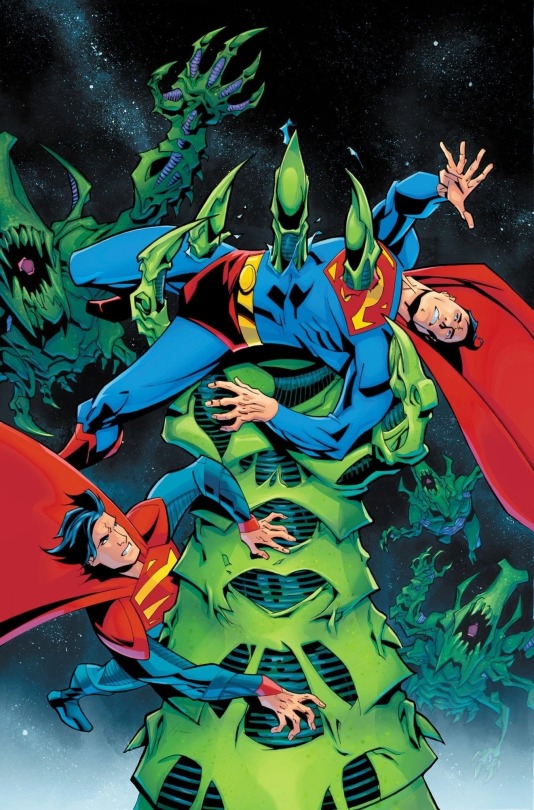
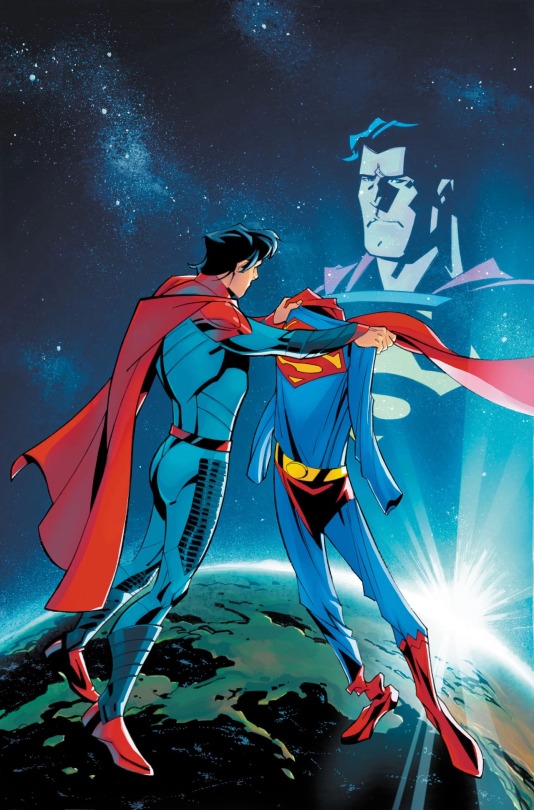
If you’re about to read THE WARWORLD SAGA, be sure to pick up ‘Superman: The One Who Fell’ trade paperback first as it explains why Superman’s powers are no longer at their peak. Or get the overview of the two-part THE GOLDEN AGE story arc from that volume at OmniverseComics.Guide
For the complete reading order to ‘The Warworld Saga’, see our entries on…
• The Golden Age (2021)
• The Warworld Saga (2021-2022)
• Kal-El Returns (2022-2023)
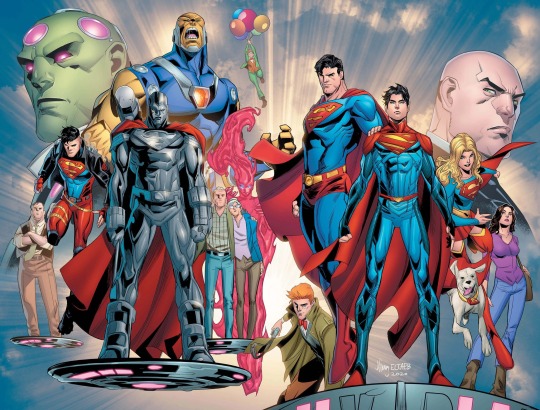
Featured cover art:
SUPERMAN #29 (2021)
& ACTION COMICS #1029 (2021)
by Phil Hester, Eric Gapstur & Hi-Fi Design
SUPERMAN #29 (2021)
wraparound variant by John Timms & Gabe Eltaeb
#golden age#warworld saga#superman#phil hester#phillip kennedy johnson#dc comics#superboy#gaeb eltaeb#John timms#mongul#superman family
38 notes
·
View notes
Note
I LOVE YOUR ART SO MUCH AAAAAH 😭
The way you draw the Gaeb is just... *Chef kiss*

thank you so so much!! you guys motivate n make me happy a lot 🙏🙏
69 notes
·
View notes
Text



1998 Yahoo! Internet Lift July X-Files Gillian Anderson Interview
X-LIFE: Scully seems to be in tune with her computer, e-mail, and the Net. But you've admitted that's the show, not real life. Has the role nudge you into exploring cyberspace a bit more?
GILLIAN: Well, I do own a laptop, but part of me is a little afraid I would shirk my real-life responsibilities if I actually went online a lot.
X-LIFE: So how do you look so convincing when you're using computers on the show?
GILLIAN: It's called acting. I have a general idea of what's on the Net. I don't have a deep understanding of all those chat rooms, or have down all of the terminology. But I can definitely pretend like I do.
X-LIFE: No one has a deep understanding of those chat rooms. How do you feel about online adulation? Last we searched, there were 24,000 Web links listed in AltaVista such sites as the Gillian Anderson Estrogen Brigade (www.teatime.com/gaeb), the Gillian Anderson House of Worship (crunchie.simplenet.com/gahow.html), and the Gillian Anderson Picture Vault (www.geocities.com/Hollywood/Theatre/2527). Do you sometimes stop and think, "Who are all these people?"
GILLIAN: Honestly, if it makes people happy I don't care what they do with their free time, with their lives. If that's the way they want to spend it, then it's their choice. I don't consider them losers in any way. Hey, they're doing that instead of hitting the bars, and that's fine by me.
X-LIFE: Yet the minute there's talk or even rumors about you in the press, it's on the Net in a matter of seconds. Does that make you a little paranoid?
GILLIAN: Hmmm ... I hadn't really thought about it in terms of paranoia.
X-LIFE: All that "truth" showing up out there?
GILLIAN: Come to think of it, now you're making me paranoid. [Laughs] People make up stuff. That's what the whole tabloid press is about. But all that matters is the truth, and we know what the truth is. Everything else is superfluous.
X-LIFE: So when you do log on, what do you log on for?
GILLIAN: It's mostly when I do some work with my local radio station. Sometimes, after a radio session, I'll log on. But most of the time we have to abort the process because so many people start coming on to ask questions that the entire system shuts down.
X-LIFE: When Scully goes home at night and logs on, where does she go?
GILLIAN: Most of the time she's looking for research, or trying to find information about people she's investigating. Pathogens, diseases, and stuff like that.
X-LIFE: Would she ever consider going into a chat room with a nice, single pathologist?
GILLIAN: A nice, single pathologist? [Laughs] She might. That's kind of interesting. She might.
X-LIFE: I ask because online, one of the most debated X-Files questions is, "Who should Scully become romantically involved with? The list runs the gamut from Mulder to Krycek to Skinner. For the record, what kind of man is Scully attracted to?
GILLIAN: Well, hey, that's not a very big pool you've got there.
X-LIFE: Fans will throw any character into the scenario. Shoot, even Flukeman.
GILLIAN: What about, oh, what was his name? Kresge. I thought there might be some possibility there for Scully. That was the one person I can see her being interested in. The only valid prospect in the last couple of years.
X-LIFE: That's kind of depressing.
GILLIAN: Well, she doesn't have a lot of time for anything else.
X-LIFE: There's also some rough stuff out there on the Net. As a mother, what are your impressions of the Net?
GILLIAN: I think that's it's valid to put some kind of block on some of the information that's out there, but otherwise, I think the way to deal with it is in education, and working with kids early on in their lives so they don't feel the need to have that kind of outlet. If they're predisposed to finding that [pornographic] kind of information, there's something lacking in their lives. It's not about getting the information, because they can get it anywhere they want.
X-LIFE: Well, what do you think about all of the manipulated photos of you that are on the net from facial distortions to superimposed nude bodies? You and Alicia Silverstone are perhaps the favorite subjects of these enthusiasts. Does this bother you at all?
GILLIAN: No. It would bother me more if I thought they were real photos of me nude. Knowing that they're not, it doesn't really bother me at all.
X-LIFE: Then you take a live-and-let live approach?
GILLIAN: Why should I be bothered? As far as David [Duchovny, her costar] and I are concerned, our images are exploited left and right, and we have no control over it. So it's just another aspect of that.
X-LIFE: Speaking of exploitation, there's been a lot of tension between Twentieth Century Fox and online fans over some X-Files fan sites and the posting of copyrighted materials. At first, this was largely tolerated; now, Fox is going after them, and many fans feel it will backfire. How do you feel?
GILLIAN: I'm not actually aware of that struggle. Tell me more about it.
X-LIFE: Well, there are a lot of sites out there devoted to you and David. Most are not posted for profit, although some fans do post copyrighted stills of the show. So Fox lawyers have sent out cease-and-desist letters to some of the sites. The online community gets unhappy when this happens, but Fox has a point as well.
GILLIAN: I'm not versed enough about the Internet to know what's being exploited and what's not. But I believe in freedom of speech, and to a certain degree, freedom of the press. My opinion right off the bat is that it's just people online having a good time. As long as it's not for profit, Fox is making a tremendous profit on everything. I don't think it would diminish the profit that they're making. If it's not for profit, and it's just for fun, hey, it's par for the course.
X-LIFE: There's a lot of speculation on the Internet about the success of your upcoming movie. Entertainment Weekly rated the film one of the riskiest releases of the coming season. Is that a concern of yours?
GILLIAN: No, it's not a concern at all. I don't know why they would have rated it risky. With all of the die-hard fans alone, the movie would end up being a success, and that's not even taking into consideration new viewers or people who have never seen the show before.
X-LIFE: What does the success of the film mean for you?
GILLIAN: It would mean that in the future, we would revisit this situation every few years and do more features, which for me is an exciting prospect.
X-LIFE: Are you getting tired of the television series?
GILLIAN: It's not that I'm getting tired of it, it's just that it's incredibly grueling. And if we're going to be doing features every few years, ya know, it seems that the more productive scenario to keep us alive and interested in doing the work would be to have the show flip over to features, and gradually let go of he TV series within the next one or two years.
X-LIFE: On the Net, fans rate Jose Chung's "From Outer Space" and Clyde Bruckman's "Final Repose" as the best episodes. Which do you like most?
GILLIAN: I think that one of the more recent ones the vampire one, called "Bad Blood," is one of my favorites of all time now.
X-LIFE: Do you feel any of the episodes have gone too far?
GILLIAN: There are some I'm not too crazy about, but not because they went too far. I wasn't that crazy in the end about the two-parter involving my daughter. I liked aspects of them, but as a whole, they didn't turn out as well as I wanted them to.
X-LIFE: Does [X-Files creator] Chris Carter ever come on the set to show you things he find online, like what Net fans think about your performances?
GILLIAN: Chris will sometimes bring up things that perked his interest online. But we don't actually see him that often.
X-LIFE: Final question: When it comes to believing in extraterrestrial life, are you more like Scully or Mulder?
GILLIAN: My take is that the universe is vast beyond our wildest dreams, that it's more likely than not that there is life out there. In that respect, I'd have to say I'm more Mulder-oriented.
End interview
#long post#long text post#x files#gillian anderson#fight for the future#david duchovny#mine#my photos#transcript#dana scully#fox mulder
20 notes
·
View notes
Text

César Aira
He has published more than 100 novels, gives his work away, and his surrealist books have a massive cult following. Now Argentina’s favourite rule-breaker is tipped for the Nobel prize
Afew years ago when Patti Smith played at a cultural festival in Denmark, she told the crowd that she was happy to be playing in the presence of one of her favourite authors. It was said she had only agreed to play the festival because the author, César Aira, would be in the audience. Aira, although celebrated in his home country, Argentina, was little known outside Latin America until he was discovered in 2002 by the Berlin-based literary agent Michael Gaeb, who was enchanted by his unconventional, surrealist books, which shift atmosphere, and even genre, from one page to another.
At first it proved difficult to sell Aira’s novels to a wider audience. “The fundamental problem when promoting César’s work is that the editor always asks: ‘What is the novel about?’” Gaeb told me. “And in the case of César, it’s not easy to answer that question.”
Gaeb has since sold Aira’s books in 37 languages. At the start of October last year, the English betting site Nicer Odds named Aira as a favourite for the Nobel prize in literature, slightly ahead of candidates such as Haruki Murakami and Salman Rushdie, who have appeared more regularly on such lists.
“I already know that every October, until my death, I’m going to have to put up with that.” Said by any other writer, this would come across as a humble brag. But Aira doesn’t seem to be the kind of person who appreciates disrupting events. “Sometimes the candidacy is useful to me,” he said, laughing. “For instance, now we live in a more luxurious apartment, one a little beyond my circumstances. And they rent to me because they see that I am a candidate for the Nobel.”
His apartment is located just five blocks from his office, which in its turn was the house where he lived for more than 40 years with his two children and his wife, Liliana Ponce, a poet and a scholar of Japanese literature. The recent move took place because Ponce has an illness that affects her mobility, and the new building has an elevator.
Aira, who does not speak to the local press and whose interviews with foreign media are usually short and conducted via email, rarely leaves Flores, a lower-middle-class neighbourhood that’s best known today as a textile hub for the clothing stores in wealthier areas of the city. Early in his career, Aira developed a method called the fuga hacia adelante (something like “forward flight”), which consists of writing a few hours a day and never looking back to edit until he reaches the end of a tale. “I revise much more than I did before,” casually demystifying what is perhaps the fact most repeated about his work. “I think that I’ve become more demanding. Or else I’m writing worse than before.”
The novels were – and sometimes still are – written in neighbourhood bars, cafes and even fast-food joints, such as McDonald’s or Pumper Nic, a now-extinct Buenos Aires chain. “It began when my children were small,” he said. “If I had a bit of time, I escaped, and I went to write. But after the pandemic, the bars and cafes started to fill up a lot. And there’s the issue of the telephones. If at a neighbouring table two people are conversing, it’s possible to ignore them. But if there’s just one person talking on the phone, it’s as if they’re speaking with you. It’s horrible!”
Aira was born in Coronel Pringles, in a small town in the south of the province, 300 miles from the capital. “I was thinking just now of my first memories of childhood because they are of the revolution of 1955,” he said – the year Juan Perón was removed from power by a coup for the first time. There was only one cinema, and television had not yet caught on. But the town had two well-stocked public libraries. “When I was still a teenager, I was already reading Joyce, Proust and Kafka,” Aira said. His precocity was also stimulated by an amateur public education in which classes were taught not by specialised professors but by volunteers with gigantic private collections of books. There were doctors who taught philosophy classes (“in those days, doctors were humanists”) and lawyers who taught history. “I didn’t have that kind of bureaucratic education where the teacher knows more,” he said. “It was something a lot freer.”
When he was about 14 years old, Aira met Arturo Carrera, a friend who, like him, would become a nationally recognised writer. Aira dedicated himself to prose; Carrera, poetry. The friends tried to stay up to date with the literary world by getting hold of magazines that were based in the capital. One of those publications, Testigo (Witness), held a contest. Carrera sent a few poems, and Aira sent a story. They both came out winners.
At the time, the majority of promising secondary school students in Coronel Pringles continued their university studies in Bahía Blanca, a city 75 miles away. “Law was the only graduate course they didn’t have,” Aira said. He told his parents he was interested in a law degree and moved to the capital. “I wanted to come for the art galleries, the cinemas,” he said. For two years, he studied law at the University of Buenos Aires, and then he transferred to the department of literature.
Testigo folded before it could publish Aira’s winning story. But one of the judges of the award, the novelist Abelardo Arias, wrote to congratulate him. Aira and Arias began a correspondence, and soon Aira showed Arias a manuscript. Arias loved it and passed it on to the publisher Galerna, which agreed to print it.
“It was a big thing, even more so for a young person of that age,” Aira said.
One day, walking aimlessly through the streets of the city with a friend, he came across a building he knew. “Here, in this building, an editor wants to publish a novel of mine,” he told her. “Let’s go up.” When he arrived, he asked to speak with the person responsible for his book. Then he asked for the manuscript back: “I don’t want to publish it any more.” The editor was astonished.
I asked Aira why he’d acted like that. “Just because,” he said. He shrugged and laughed. “I wanted to impress her.”
To write all day long without revising until you reach the end of a story produces an obscene quantity of books. Nobody I met in Buenos Aires ventured to pin down exactly how many volumes Aira has published. César Aira, un catálogo (César Aira: A Catalogue), organised by the writer and lawyer Ricardo Strafacce, is the most notable effort to itemise his work. Launched in 2018 with the aim of helping the uninitiated, the catalogue reprints one page from each of Aira’s books. The catalogue was commissioned by his publisher in part to commemorate his 100th book (Aira likes round numbers), but in the time the catalogue took to reach the printer, Aira had already written two more.
When I sat with Strafacce in the Varela-Varelita bar in Buenos Aires at the end of a November afternoon, he was still indignant with the catalogue’s publisher, who he said had made changes without telling him. For instance, the publisher had edited the date of publication for the Aira story El hornero (The Ovenbird). “I’m furious,” he said. “You can talk to [the editor]. I don’t give a shit.” He complained about another small modification: in the biographical information for one of the titles, to his mention of Madrid, the editor had added “Spain”. In Strafacce’s eyes, the detail made him seem like an idiot, a “boludo”.
“Don’t writers get worked up about the most incredible minutiae?” said Francisco Garamona, the editor in question. With a cigarette in one hand and a glass of soda in the other, he explained that he’d merely used the version of El hornero that Aira himself had authorised, rather than the one in circulation, which was pirated. He was sitting on a sofa in La Internacional Argentina, his bookshop, where he also operates his publishing house, Mansalva. Today, Mansalva probably publishes the most titles by Aira. “There he is, and here are more, here’s another, and here,” Garamona said as he counted the shelves in the bookshop. “One, two, three … seven. Seven niches of just Aira.”
In a way, the decor reflected Garamona’s multifaceted career; in addition to being an editor and a bookshop owner, he is a musician, a film-maker, a poet and the former owner of an art gallery. Today he is also one of two editors whom Aira defined for me as “official”. The other is Damián Ríos, from the publisher Blatt & Ríos.
The honour of “official” editors must inspire some pride in Ríos and Garamona, because Aira has worked with more than a few. His extensive body of work is decentralised in dozens of editorial houses, the vast majority of them tiny, which makes him an author at once ubiquitous and elusive. In this context, it’s not difficult to understand how a controversy like the one with El hornero came about. Aira must be one of the few writers in the world, maybe the only one, to sell 25,000 copies of one title and at the same time launch other titles in much smaller print runs. He has never charged royalties or advances for the small publishing houses in Argentina. “That was the agreement I made with Michael [Gaeb],” Aira said. “I don’t meddle with the world. And he doesn’t meddle with Argentina. In Argentina, everything is free.”
Aira’s strong cultural presence today conceals the stuttering start of his career. “For many years, this was the only proof I was a writer,” he said, showing a handful of yellowing pages, the nucleus of a book without a cover. His voice shook, this time, emotion had truly moved him. In his hands was a copy of Moreira, considered by some to be his first published novel. In the background, an atmospheric combination of dissonant chords and piano notes faded away. “I only listen to Morton Feldman these days,” Aira said. He added that he’d recently made an exception to listen to Now and Then, a “new” song by the Beatles completed thanks to help from artificial intelligence.
After going up to the office of the publishing house Galerna in 1969, in that half-impulsive gesture to ask for his manuscript back, some years went by before Aira had a chance to publish again. Moreira was supposed to come out in 1975, but was delayed. The editor of the book was Aira’s friend Horacio Achával, owner of the publishing house Achával Solo. In 1976, there was another military coup in Argentina. “Horacio was a political militant and had to go away,” Aira said. “He took off. He went to Uruguay.” The copies of Moreira, still without a cover, were left stranded in a warehouse. Years later, Achával returned to the country and finalised the cover. The book was officially launched in December 1981, just weeks after Ema, la cautiva (Ema, the Captive), which came out from another publishing house in November 1981 and today disputes with Moreira the title of Aira’s official debut.
Strafacce told a different story. “Moreira was printed in June 1975,” he said. “The money ran out, and there wasn’t enough to print the cover because in the same month, there was a financial crisis and a bank run here in Argentina.”
Aira published a few books in the 80s, but according to Sandra Contreras, who founded a small publishing house that published him throughout the 90s and 2000s, it was not until 1990’s Los fantasmas (Ghosts) that he accelerated his production. At the time, she said, he also spoke more explicitly of a new phase, “the beginning of the regular publication of his novelas and novelitas”. Aira was the first author to be published not only by Contreras’s publishing house but also by Mansalva and Blatt & Ríos in the early 00s.
In the 90s, small publishers like these were rare. Garamona said that this began to change in 2001, when after almost a decade of one-to-one parity between the Argentine peso and the US dollar, the local economy went through one of the worst recessions in Latin American history. Importing books became expensive. And so, after spending years favouring authors from Spain, local bookshop owners finally had eyes for Argentine literature.
When Gaeb first encountered Aira’s work in Guadalajara, in 2002, Aira had already begun to occupy his paradoxical central position at the margins of the culture. “He is a writer who exists in different fields, at different levels,” the fiction writer and critic Alan Pauls says, from his Berlin study, in a conversation over Zoom. “On the one hand, he has quite a lot of popularity. And on the other, he remains a niche writer, a cult writer. We still think of him as a writer of the avant garde, a manufacturer of very sophisticated objects. He’s someone who occupies the centre to his regret, not because he looked for it.”
To get hold of Moreira today isn’t easy – on the site Mercado Libre Argentina, in mid-December, there was a copy going for about $1,200 (£950). On the cover that for years remained unfinished, there is a monstrous, saturnine figure riding a yellow horse. Beneath the image, the first sentence of the novel prominently appears: Un día, de madrugada, por las lomas inmóviles del Pensamiento bajaba montado en potro amarillo un horrible gaucho (“One day at dawn, through the unmoving hills of Thought, mounted upon a yellow colt, there descended a horrible gaucho”).
In Spanish, El Pensamiento can refer to both the abstract noun, and the village close to where Aira was born and spent his childhood. The phrase gives a taste of the kind of mixture harboured within the novel. Evoking Juan Moreira, a folkloric knife-fighting hero of the Argentine Pampas, the book narrates a gaucho-esque pantomime, shot through with philosophical allusions and images from dreams. In Moreira, one can already recognise the multifaceted and frenetically imaginative style for which Aira would later be known. But the Airean machine still seems to just be getting started: there is a heavy self-consciousness that is absent from the books that follow. In these later works, his prose is limpid and inviting. Here is the start of El mago (The Magician), published almost exactly 20 years after Moreira:
In March this year, the Argentine magician Hans Chans (his real name was Pedro María Gregorini) participated in a convention of illusionists in Panamá; the event, just as the invitation and promotional leaflet described, was a regional meeting of prestigious professionals, a preparation for the great world congress the following year, which was celebrated every 10 years and this time would take place in Hong Kong. The previous one had been in Chicago, and he had not gone. Now he planned not only to participate, but also to establish himself as Best Magician in the World. The idea was not crazy or megalomaniacal. It had a foundation as reasonable as it was curious: Hans Chans was a genuine magician.
Aira takes this magical premise seriously, drawing from the dilemma a tale both comic and – in its exploration of the complex relations between being and seeming – densely philosophical. Hans Chans has the gift to be an illusionist, but not the vocation. He is too self-indulgent to dedicate himself to the profession. The narrator writes: “Maybe, paradoxically, the advantage he had played against him and condemned him to mediocrity.” Without patience for the theatre of magic, Chans limits himself to drawing handkerchiefs from wine glasses, and things of that sort.
It would not be unfair to read El mago as an allegory for the career of Aira himself: of someone who has the gift of writing but for whom the most deeply rooted conventions of the profession seem meaningless. Just like Hans Chans, the author is aware of his gift. Aira is affable and courteous, but he is far from being modest. (Modesty, faked or not, is another convention of the profession.) About the manuscript he asked to take back from Galerna in 1969, he said: “It was better than anything else that was published at the time.”
He has never been afraid to throw darts at other writers. When we spoke, he was disdainful of Roberto Bolaño, saying he had read only one novel by the Chilean author, which he found “terrible”. Aira also said that the great Argentine novelist Juan José Saer had once warmed to him, when he was young and starting out, but then became envious when Aira started getting more attention. In 1981, shortly before Moreira was finally published, Aira wrote an essay titled Novela argentina: nada más que una idea (The Argentine Novel: Nothing But an Idea), which mounts a general attack on literature of the period. The essay begins:
The current Argentine novel, beyond a doubt, is a stunted, ill-fated species. In general terms, what defines a poor novelistic product is the poor use, crude and opportunistic, of the available mythical-social material. In other words, the meanings that dictate how a society lives at a given historical moment. But the literary transposition of a reality demands the existence of a very exact passion: that of literature. And a rapid, provisional survey, not at all exhaustive, of Argentine novelists reveals that they have not read deeply, and show a complete absence of that passion along with its epiphenomenon, talent.
Aira, who had not even published a novel at that time, sticks his scalpel swiftly and mercilessly into a series of authors, most of whom have been more or less forgotten. The essay, though, is remembered these days for Aira’s attack on Ricardo Piglia, who, until his death in 2017, was a kind of public rival to Aira, at least in terms of the very different literary forms they espoused.
Pauls linked Aira’s attacks at the start of his career to his ambition to reconfigure the Argentine novel. “When he emerges in the literary environment, he knows perfectly well the writers he has to tussle with,” he said. For Pauls, Aira disturbed the paradigm of a certain progressive Argentinian literature, a literature of the left, very masculine and politically committed. “Something that literary school could not stand, for example, was a certain kind of work with frivolity, with the banal, with the superficial,” Pauls said.
Aira’s style crystallised very early on. Even if Moreira is not at the level of his next books, there is no clear sense of progression in Aira’s trajectory. Maybe for that reason, none of the readers could point to a favourite work.
Aira said he will have two new novelitas ready soon. He said he plans to give one to Ríos and the other to Garamona. “And now I’ve been thinking, because one of them came out better than the other, more imaginative – who will I give that one to?” he said, laughing.
Aira rejects great theorising about his decision to give away books free or publish the majority with small publishing houses. “His form of publishing is part of his poetics, his resistance to editorial capitalism, his punk attitude,” Gaeb said.
Contreras classified the hyperproduction of little books for small publishers as an aesthetic decision. “Something like: it’s enough for a tale to be imagined to make it necessary to publish,” she said. “There is also a fascination for the book as a unique object.”
Pauls said he interprets this decision as an avant garde way of thinking: “If the kind of literature I make is never going to have hundreds of thousands of readers, what happens if I inundate the market with books?”
When Aira was asked if he was edited nowadays, first he said that “nobody revises anything”. Then he conceded that Ríos sometimes makes one comment or another. Ríos corroborated this, but found it hard to define the exact nature of his comments, and he made it clear that they weren’t about anything structural. Contreras said that in her day, she at most corrected the odd typo.
Garamona laughed at the notion of editing or revising a text by Aira. “He has written since he was a teenager without stopping, and has such a mastery of form and content that in the end there isn’t much left to do,” he said. “You just have to pick it up, make a good cover with a pretty design, correct two or three errata.”
Los hombrecitos con sobretodo (The Little Men in Overcoats) is the title of the novel Aira defined as the most imaginative of the two he recently finished. “What happens is that here in the neighbourhood, two blocks away, where the fire station is located, men pop out at night,” he said. “At midnight they come popping out of the ceiling. Little men suddenly appear like that, really tiny men, they all wear overcoats. And at night, I go and watch them.”
He spoke as if he were beginning a fairytale. The low, tremulous voice transiting between fine irony and rapture; the sense of humour; the erudition; the sedentary life in a dark house in the neighbourhood where he’d lived for decades, from which he generates cosmopolitan, compact stories full of metafictional layers – all of it reminds us a bit of Jorge Luis Borges.
For an Argentinian, to say a great local writer seems like or is influenced by Borges must sound absurdly lazy. But both authors start their brief, densely packed books with literary anecdotes or memories written in crisp prose. In the works of both, there are frequent essayistic digressions. Both persistently turn to the literary technique of ekphrasis. There are metafictional and metaliterary games, references to other works.
The main difference is perhaps in the intensity and direction of the narrative swerves, and Aira’s greater comfort with pop culture and genre literature. Whereas a story by Borges might take up a lost 19th-century Persian manuscript, a novel by Aira might locate it behind the balcony of a McDonald’s in Flores, pored over by an adolescent with an acne problem.
Borges was almost infantile in his complete dedication as a reader, distant from the mundane hustle and bustle of the world. Nobody had anything substantial to say about Aira’s private life either. “He likes to drink coffee and talk about literature,” Ríos said. Gaeb said that Aira sometimes seems to get along better with children. (In fact, the person about whom Aira spoke with the greatest passion, albeit briefly, was Arturito, his only grandson.)
Strafacce, his friend for more than 20 years, said he found it easier to explain what Aira doesn’t talk about. “We’re used to not speaking about politics because I’m Trotskyist,” he said. “And César is not.”
It was the week of the second round of the presidential election. A few days later, the Peronist Sergio Massa, a member of the centre-left governing coalition at the time, would be defeated by the far-right Javier Milei. “Milei is worse than Bolsonaro,” said Aira, in his only comment about politics.
That day, before going to the cafe, Aira passed through the Museo Barrio de Flores. Earlier, he had been irritated at a package from one of his foreign publishers: a box containing copies of one of his novels in Dutch translation. “They keep sending me those here,” he complained, as if sending books to the author himself were a kind of gaffe. Aira handles books with the avidity of a collector. He was mesmerised for a good while that afternoon by an edition of the French author Raymond Roussel, one of his surrealist idols, and he showed us a little purple box the size of a pack of cigarettes: a tiny special edition the Biblioteca Nacional had made of El ilustre mago (The Famous Magician), another novel of his. But for some reason, he wanted to rid himself of the box with the Dutch edition.
The Museo Barrio de Flores does exactly what its name suggests, displaying all kinds of memorabilia – old calculators and radios, paintings, newspaper clippings, political propaganda – related in some way to famous inhabitants of the neighbourhood. The definition of “famous” is broad, ranging from Perón – who lived there with his first wife – to the two preteen nieces of the museum’s director, who created a children’s library during the pandemic and appeared on the front page of the newspaper Clarín. Aira seemed at ease there. His name occupies one of the steps on the staircase by the front door. On the step above is the name of the great writer Roberto Arlt; on the one below, an advertisement for a real-estate broker.
Aira left the box of books with an employee and continued through the museum. At one point he dwelt on a framed letter written by Pope Francis, another former inhabitant of the neighbourhood. “Did you see how pretty the pope’s handwriting is? They don’t teach that in school any more, no.” He went to another room, where there was a showcase with some of Aira’s books.
When he opened the door, there was a group of ladies sitting around a big table. A class was in session. They all smiled pleasantly, focusing their attention on the author. Only the instructor of the course seemed to be younger than 65.
“What is the name of the little plane that flies near the ground?” one of the ladies asked.
“The what?” said Aira.
“The little plane,” the lady repeated, with a certain impatience, lowering her open palm toward the floor. “The one that flies near the ground.”
For a while, everyone stared at Aira, waiting for an answer. “An unexpected question,” joked the instructor awkwardly.
Aira shrugged, and we went to the corner to look at his showcase.
✔ This is an edited version of César Aira’s Magic, published in the Dial. The article originally appeared in the Brazilian magazine Piauí
Daily inspiration. Discover more photos at Just for Books…?
7 notes
·
View notes
Text
,Aber wenn du willst, auch du das willst, ja, dann fang'n wir jetzt einfach nochmal ganz von vorne an... For the first cut in love and the life by a man ...'
Danke fuer die erneut mir erwiesene Freundschaft vom gestrigen Abend und die Wegbegleitung! to Lady Moonfall - as a friend. Maximilian
'Dein Aussehen mir gezeigtes es war nie ein besseres oder schoeneres'
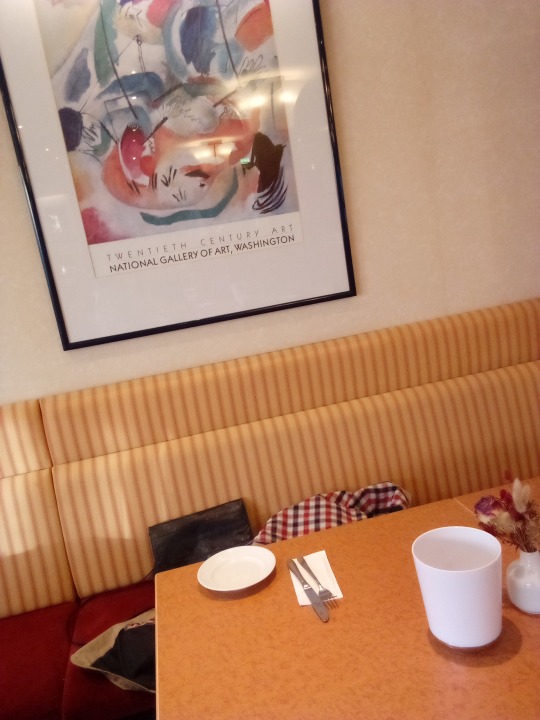
'So tell me people: Why do we always wish to return ... To that places an' towns where even we once might have belonged!!
Get back, ooh get back, people have a stronger wish they wanna go back to the places were they once were born!'

*Offizierskind (fest stationierter Eltern)
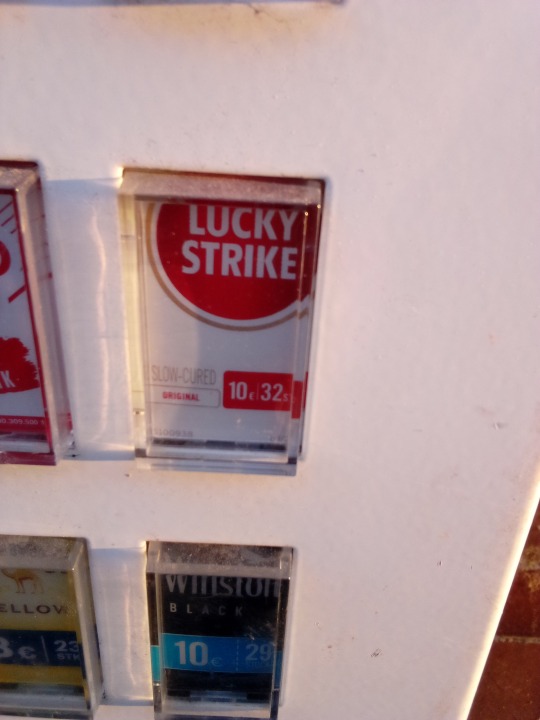


Slash im Gastfernsehen und dem T.v.-Geraet des Hotels. *beruehmter Musiker und Us-Gitarrist (90er)









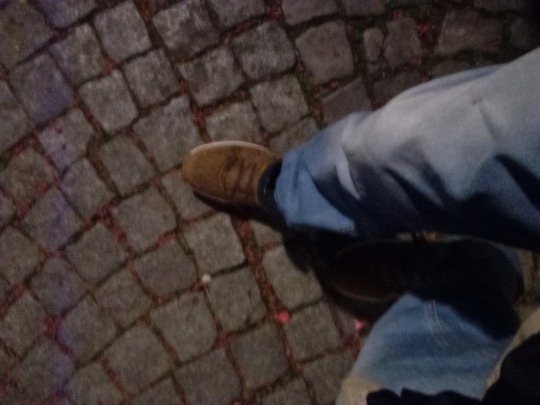
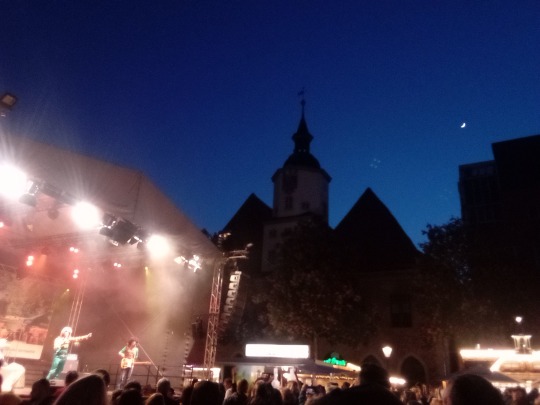




(den) Max (V)ertappen! Erstmals wurde ich so gestern sogar dazu aufgefordert, aus einem von mir bereits bestiegenem Zug noch genauso auch wieder auszusteigen (fuhr nach Dresden) weil man mich nicht sicher darin glaubte!
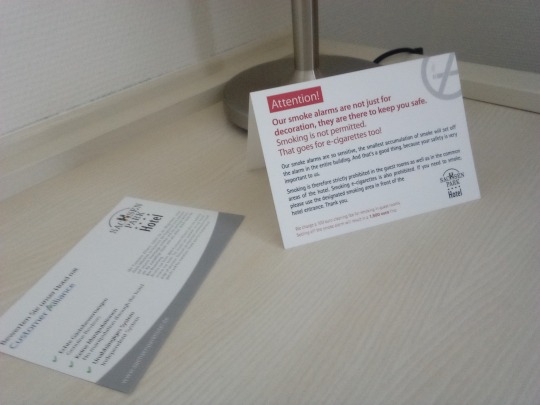



Die Reiseumhaengetasche mit dem wachsend grossem Eigen-Beruehmtsheitsgrad, sodass sogar Soeder in Bayern dieselbe jetzt schon auch besitzen soll laut BILD!
'Meine private Umhaenge-Tasche ist erstmals vielleicht schon beruehmter so als ich! Noch bekannter als der Besitzer von ihr es je sein oder selber auch werden kann - als von der Erde kommender Dichter und Saenger!' (4Weekenders, Bands der 70er und 80er Jahre. George Malwick ist der 'Businessman' im Film. Filmmusiken. Erfolgreiche Buehnen-Comebacks und Bandwiedervereinigungen 2024. Kino/cinema. Unterhaltungsmusik- und Bands. Dorf- und Schuetzenfeste/die Zeltveranstaltung. Die grosse Landdisko fuer mehr als 3000 Besucher und der Haupt-Sound der 70er bis 90er Jahre wie bei Bremen:
'Spielt nochmal die Aerzte fuer uns!' 'Und wieder sehr viel mehr auch Tote Hosen!!!'
'Wir lieben euch oder taten es immer schon mit auch eurer Band mindestens noch genauso - und auch dafuer dann wieder!
Nur die vier Beatles sollen vielleicht einen winzigen Tick noch besser gewesen sein als auch ihr es tut in unseren Augen - damals waehrend ihrer auch eigenen mega- erfolgreichen Zeiten noch und in Hamburg!! John, Paul, Ringo und George!!!'
'Und dann bringt, bitten wir euch auch, endlich wieder sehr viel mehr von auch den eigen-komponierten Songs wie: 'Only 10 minutes'. Ueber die fruehere Freundin die zurueckkommen soll, die ihr unbedingt zurueckhaben wollt', einer von euch, und die jetzt eigens deswegen dazu am Telefon erst ueberredet werden muss, dass sie es tut! Hat sie es eigentlich dann so auch getan? Kam sie zurueck??')
'Danke erneut! Sage ich!! Eigens wieder selbst auch dir, Rainfall, als ebenfalls schon sehr altem Freund, fuer die mir ebenfalls wieder gewaehrte sehr grosszuegige Hilfe gegenueber moeglichen Verfolgergruppen, selbst wieder dann durch auch dich!'

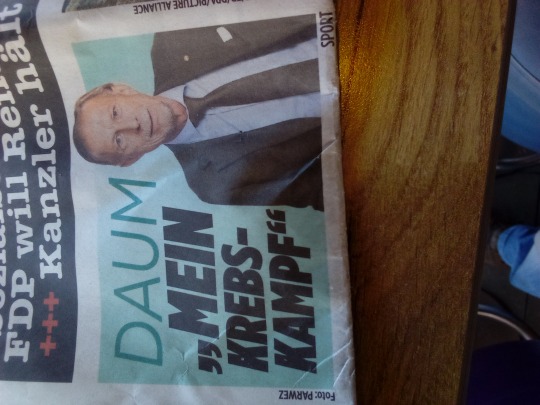



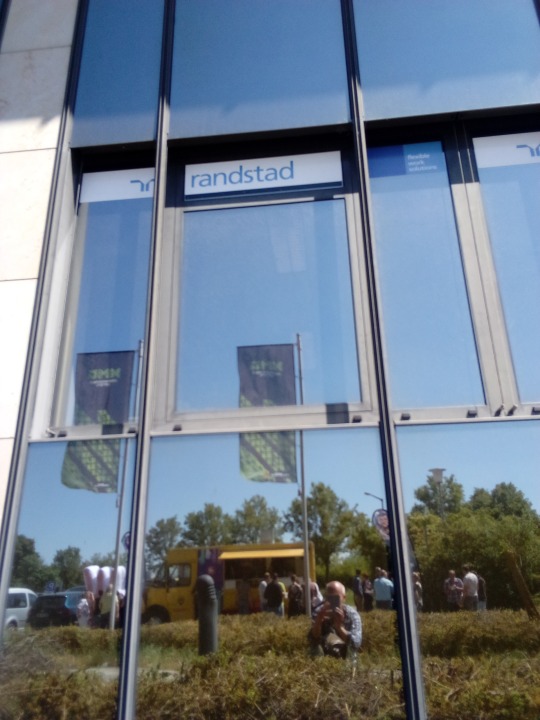
Eine ploetzlich ebenfalls mit auftauchende Arbeitsvermittleragentur (fuer Porsche und BMW-Fertigung). 'Randstad'. Ich lief dann hinein, liesse ueber Arbeitsmoeglichkeiten informieren, moegliche Jobs, als nach wie vor Wohnungslosem, wie ich sagte, dennoch aber recht gesundem Manne, oder ich sei erst wieder zu einem geworden! Das Problem, das sich mir dabei seit Jahren nur schon dabei boete, sagte ich dabei auch, ohne feste Wohn-und Melde-Adresse duerfe niemand mich einstellen, dazu gaebe es ein eigens durch die Politik neu erlassenes Gesetz! ('Klar, Autos baut jeder Deutsche irgendwie gern! Ist Tradition! Waer' bei mir dann nicht so viel anders auch! Wenn ich den Job also haben koennte, sagte ich dazu nicht Nein!')
#Preise fuer ein besseres Klima#das Betriebs- oder Firmenklina#Innenklima#messbare Stimmung#Tokio Hotel (90er Jahre Pop)#Firmenwerbung fuer McDonalds#'Durch den Monsoon'
2 notes
·
View notes
Text
the way my mind slowly pans over to gaeb whenever im thinking about my dad makes me feel so sinister 😭
i open the door and he's playing with his toys and im just like. You.
0 notes
Text
mey neow tuhund mashoor teh aaw barbaad karneh khetri mey traewiw paans kun mey traewiw paans kun mey neow tuhund mashoor teh aaw barbaad karneh khetri mey traewiw paans kun mey traewiw paans kun awah mey aaw tsey waraey zinde rozne khetri banavni mager beh gatshe neh zane samjeth zane teh samajh neh awah beh oasus tsey waraey zinde rozne khetri zamut mager beh kareh neh zane tih samjeth zane tih samajh neh mey aaz panun paan dokh wuchne khetri zi keya mey chha wunih tih mehsus beh chus dagas pyeth tawajjah diwaan wehid cheez yus aslee chu setsi chu akis surakhas osh karaan praeni waqif siting kushish keriv yih soruy duur marnech mager mey chu soruy kenh yaad beh kyah chhus banyomut meon saarvey khote modur dost pryath kaanh yus mey zanaan chu akhras manz teh tohi hekiw yih soruy hesil kerith myen gandech sultanat beh ditsi tsey boan beh kareh tsey dokhe beh chhus/chas kaantan hund yih taaj laagaan myaenis laver senzi karsi peeth phutmut khayalatu siyt berith beh hekeh neh marmat kerith tayam keen daghan till ehsaas chu gaeb gatshaan tuy chev beyi kaanh beh chhus/chas wunih tih yeti beh kyah chhus banyomut meon saarvey khote modur dost pryath kaanh yus mey zanaan chu akhras manz teh tohi hekiw yih soruy hesil kerith myen gandech sultanat beh ditsi tsey boan beh banave tse
maine sening kenesshindi alyp, rulyk kauymga keldim meni ozime kaldyrinyz, ozime kaldyrinyz maine sening kenesshindi alyp, rulyk kauymga keldim meni ozime kaldyrinyz, ozime kaldyrinyz o maine saincysis umir suru ushin zhasaldym birak maine eshkashan tusinbamin, eshkashan tusinbamin o maine saincysis umir suru ushin duniege keldim birak maine eshkashan tusinbamin, eshkashan tusinbamin, buguin ozime zaqim keltiredi uzimdy ali day sesinetinimdi koru ushin auirsinudi basa nazar audaramin shindykka zhanasatyn zhalgyz narsay ine tesikti zhasyryp kalady eski tanys sting barin oltiruge thyrisines birak bari esimde maine nay boldym mening tatti dosym maine biletinderdine barlygi ketip barra zhatyr sonynda zhane sizde osyning bari boluy mumkin mening kir imperiam maine sizdy temen generational maine sizge zaqim keltiremin thorndardin osy tazhin kiip zurmin mening zhala zhapkan kreslomnin ustinen singhan oilarga tola maine zhondey almaymyn ouaqit daktarynin astynda sesimder zhogalyp ketedi siz basqa bireusiz maine ali day osyndamyn maine nay boldym mening tatti dosym maine biletinderdine barlygi ketip barra zhatyr sonynda zhane sizde osyning bari boluy mumkin mening kir imperiam maine sizdy temen generational maine sani zhasaymyn
haanv tujo sallo ghevan nasht javank aylon mhaka swataa kaden sod, mhaka swataa kaden sod haanv tujo sallo ghevan nasht javank aylon mhaka swataa kaden sod, mhaka swataa kaden sod are mhaka tuje bagar jiyevank laayalo poon haanv kennaach samjunk na, kennaach samjunk na are haanv tuje bagar jiyevank jalmaak aailaam poon haanv kennaach samjunk na, kennaach samjunk na haanvem aaj swataak dukhayalen ajunuy mhaka janvata kay na ten palovapaak dukkhaancher laksh kendrit karta ekuch gajal khari suyek bhonvadi faatim padta pornya vallkhicho dansh hen sagllem marpacho yatn poon mhaka sagllem yaad aasa haanv kitem jalang mhajo sagalyaant god isht mhaka khabar aashille sagale jaan bhayar sartaat akherek ani tumkam hen sagllem mellum yetaalem mhajen ghanichem samrajya haanv tukaa unen karunk haanv tukaa dukhaytam kaantyaancho ho mukoot haanv ghaltam mhajyaa khoshayechya khurchicher modillyaa vicharani bharillem mhaka durusti karpaak melna kallachya dagang sakyl bhavna lupt jatat tun dusaro konooy haanv ajunuy hangach haanv kitem jalang mhajo sagalyaant god isht mhaka khabar aashille sagale jaan bhayar sartaat akherek ani tumkam hen sagllem mellum yetaalem mhajen ghanichem samrajya haanv tukaa unen karunk haanv tukaa
naneun neoui chunggoreul badadeuryeo pamyeore ireureossda nareul na jasinege matgyeo na na honja naneun neoui chunggoreul badadeuryeo pamyeore ireureossda nareul na jasinege matgyeo na na honja o, naneun dangsin eopsi saldorok mandeureojyeosseoyo hajiman jeoneun jeoldaero ihaehaji moshal geopnida, jeoldae ihaehaji moshal geopnida o, naneun dangsin eopsi salgi wihae taeeonasseoyo hajiman naneun gyeolko ihaehaji moshal geoya, gyeolko ihaehaji moshal geoyananeun oneul na jasineul dachige haesseo geuraedo gibuni joheunji hwaginhagi wihae naneun gotonge jipjunghanda jinjjain dan hannah baneuri gumeongeul ttulhseupnida. oraedoego iksukhan jjireugi modeun geoseul eopsae berrisipsio hajiman naneun modeun geoseul gieokhanda naneun mueosi doeeossneunga naui gajang sarangseureoun chingu naega aneun modeun sarami sarajyeo beorinda gyeolguk geurigo dangsineun modeun geoseul gajil su issseupnida naui heulk jeguk naneun neoreul silmang geosida naneun neoreul apeuge hal geosida naneun eye gashi myeonryugwaneul sseugo issda geojismaljaengiui uisa wie buseojin saenggageuro gadeuk cha issseupnida. surihal su eopsseupnida sewol eolluk arae gamjeongi sarajinda dangsineun dareun saramipnida naneun ajikdo yeogi issda naneun mueosi doeeossneunga naui gajang sarangseureoun chingu naega aneun modeun sarami sarajyeo beorinda gyeolguk geurigo dangsineun modeun geoseul gajil su issseupnida naui heulk jeguk naneun neoreul silmang geosida naneun neoreul mandeul geosida
Min şîreta te girt û hatim xirbeyê Min ji xwe re bihêle, min ji xwe re bihêle Min şîreta te girt û hatim xirbeyê Min ji xwe re bihêle, min ji xwe re bihêle Ax ez hatim çêkirin ku bê te bijîm Lê ez ê tu carî fam nekim , qet fêm nekim Ax ez ji dayik bûme ku bê te bijîm Lê ez ê tu carî fam nekim , qet fêm nekim îro min xwe êşand Ji bo ku bibînim bê ka ez hîn jî hîs dikim Ez li ser êşê disekinim Tekane tişta ku rast e Derziyê qulekê dibarîne Stirana naskirî ya kevin hewl bidin ku hemûyan bikujin Lê her tişt tê bîra min Ez çi bûme Dostê min ê herî şêrîn Her kesê ku ez nas dikim dûr dikeve Di dawiyê de Û te dikaribû her tişt bidest bixista Împaratoriya min a qirêj Ez ê te berdim xwarê Ez ê te biêş��nim Ez vê taca stiranan li xwe dikim Li ser kursiya derewkar Bi ramanên şikestî tijî ez nikarim tamîr bikim Di bin stûnên demê de hest wenda dibin Tu kesekî din î Ez hîn jî li vir im Ez çi bûme Dostê min ê herî şêrîn Her kesê ku ez nas dikim dûr dikeve Di dawiyê de Û te dikaribû her tişt bidest bixista Împaratoriya min a qirêj Ez ê te berdim xwarê ez ê te bikim
ڕاوێژی تۆم وەرگرت و هاتم بۆ وێرانکردن جێم بهێڵە بۆ خۆم بەجێم بهێڵە ڕاوێژی تۆم وەرگرت و هاتم بۆ وێرانکردن جێم بهێڵە بۆ خۆم بەجێم بهێڵە ئۆه من دروستکراوم بۆ ئەوەی بەبێ تۆ بژیم بەڵام من هەرگیز تێناگەم، هەرگیز تێناگەم ئۆه من لەدایک بووم بۆ ئەوەی بەبێ تۆ بژیم بەڵام من هەرگیز تێناگەم، هەرگیز تێناگەم ئەمڕۆ خۆم ئازار داوە بۆ ئەوەی بزانم ئایا هێشتا هەست دەکەم من سەرنج دەخەمە سەر ئازار تاکە شت کە ڕاستەقینەیە دەرزییەکە کونێک دەدڕێت پێوەدانی کۆنی ناسراو هەوڵ بدە هەمووی بکوژیت بەڵام هەموو شتێکم لەبیرە بووم بە چی شیرینترین هاوڕێم هەموو ئەوانەی کە دەیناسم دوور دەکەونەوە لە کۆتاییدا وە ئەتوانیت هەمووی بەدەست بهێنیت ئیمپراتۆریەتی پیسی من نائومێدت دەکەم ئازارت ئەدەم ئەم تاجە دڕکاوییە لەسەر دەکەم لەسەر کورسی درۆزنەکەم پڕ لە بیری شکاو ناتوانم چاکی بکەمەوە لە ژێر پەڵەی کات هەستەکان ون دەبن تۆ کەسێکی دیکەی من هێشتا لێرەم بووم بە چی شیرینترین هاوڕێم هەموو ئەوانەی کە دەیناسم دوور دەکەونەوە لە کۆتاییدا وە ئەتوانیت هەمووی بەدەست بهێنیت ئیمپراتۆریەتی پیسی من نائومێدت دەکەم من وات لێدەکەم
나는 너의 충고를 받아들여 파멸에 이르렀다 나를 나 자신에게 맡겨 나 나 혼자 나는 너의 충고를 받아들여 파멸에 이르렀다 나를 나 자신에게 맡겨 나 나 혼자 오, 나는 당신 없이 살도록 만들어졌어요 하지만 저는 절대로 이해하지 못할 겁니다, 절대 이해하지 못할 겁니다 오, 나는 당신 없이 살기 위해 태어났어요 하지만 나는 결코 이해하지 못할 거야, 결코 이해하지 못할 거야나는 오늘 나 자신을 다치게 했어 그래도 기분이 좋은지 확인하기 위해 나는 고통에 집중한다 진짜인 단 하나 바늘이 구멍을 뚫습니다. 오래되고 익숙한 찌르기 모든 것을 없애 버리십시오 하지만 나는 모든 것을 기억한다 나는 무엇이 되었는가 나의 가장 사랑스러운 친구 내가 아는 모든 사람이 사라져 버린다 결국 그리고 당신은 모든 것을 가질 수 있습니다 나의 흙 제국 나는 너를 실망시킬 것이다 나는 너를 아프게 할 것이다 나는 이 가시 면류관을 쓰고 있다 거짓말쟁이의 의자 위에 부서진 생각으로 가득 차 있습니다. 수리할 수 없습니다 세월의 얼룩 아래 감정이 사라진다 당신은 ���른 사람입니다 나는 아직도 여기 있다 나는 무엇이 되었는가 나의 가장 사랑스러운 친구 내가 아는 모든 사람이 사라져 버린다 결국 그리고 당신은 모든 것을 가질 수 있습니다 나의 흙 제국 나는 너를 실망시킬 것이다 나는 너를 만들 것이다
हांव तुजो सल्लो घेवन नश्ट जावंक आयलों म्हाका स्वता कडेन सोड, म्हाका स्वता कडेन सोड हांव तुजो सल्लो घेवन नश्ट जावंक आयलों म्हाका स्वता कडेन सोड, म्हाका स्वता कडेन सोड अरे म्हाका तुजे बगर जियेवंक लायलो पूण हांव केन्नाच समजूंक ना, केन्नाच समजूंक ना अरे हांव तुजे बगर जियेवंक जल्माक आयलां पूण हांव केन्नाच समजूंक ना, केन्नाच समजूंक ना हांवें आज स्वताक दुखयलें अजुनूय म्हाका जाणवता काय ना तें पळोवपाक दुख्खांचेर लक्ष केंद्रीत करता एकूच गजाल खरी सुयेक भोंवडी फाटीं पडटा पोरन्या वळखीचो दंश हें सगळें मारपाचो यत्न पूण म्हाका सगळें याद आसा हांव कितें जालां म्हजो सगळ्यांत गोड इश्ट म्हाका खबर आशिल्ले सगळे जाण भायर सरतात अखेरेक आनी तुमकां हें सगळें मेळूं येतालें म्हजें घाणीचें साम्राज्य हांव तुका उणें करूंक हांव तुका दुखयतां कांट्यांचो हो मुकूट हांव घालतां म्हज्या खोशयेच्या खुर्चीचेर मोडिल्ल्या विचारांनी भरिल्लें म्हाका दुरुस्ती करपाक मेळना काळाच्या दागां सकयल भावना लुप्त जातात तूं दुसरो कोणूय हांव अजुनूय हांगाच हांव कितें जालां म्हजो सगळ्यांत गोड इश्ट म्हाका खबर आशिल्ले सगळे जाण भायर सरतात अखेरेक आनी तुमकां हें सगळें मेळूं येतालें म्हजें घाणीचें साम्राज्य हांव तुका उणें करूंक हांव तुका
qeylIS vIlo'chugh, vaj jIlo' HIchaw'wIj vIpongmeH, jIHvaD jIjatlhnIS. qeylIS vIlo'chugh, vaj jIlo' HIchaw'wIj vIpongmeH, jIHvaD jIjatlhnIS. jIQuchpu'bej bIlengbe' 'e' vIyajchu'meH jIyaj Human vIneH Qu'chaj jIyajchu'meH jIyajchu' 'e' vIyajchugh ngagh vIlegh cheptaHvIS vISov vaj wa'netlh Dol vaj Haplaw' ghu'pu'bogh luneH ghaHvaD jatlh chep wa'netlh Dol yItlhapQo' 'ach Qu' vIchop be'nal vIchoHlaw' jupwI' jISov ghotpu' vISov "pImolchu'!" vaj bIyIntaHvIS ghoplIj chenchu'wI' lutu'wI' qaqIp loD jIchoq ngoD vIchovpu'be' ghopDu'ghotwIj DaH leghchu' 'Iwqu' bIH. jIta'laHbe' poH lettaH mIw, motlhchoH Heghpu' jatlhtaHvIS qay'chugh naDev jIH naDev jIH be'nal vIchoHlaw' jupwI' jISov ghotpu' vISov "pImolchu'!" vaj bIyIntaHvIS ghoplIj chenchu'wI' lutu'wI' qaqIp qaghoj
Najyanye inama yawe maze negera ku gihombo Ndeka ngende, ndekere aho Najyanye inama yawe maze negera ku gihombo Ndeka ngende, ndekere aho Nabayeho ntagufite Sinzigera nsobanukirwa, sinzigera nsobanukirwa Navutse ntagufite Sinzigera nsobanukirwa, sinzigera ntekereza ko uyu munsi nakomeretse Reka ndebe niba ngifite Nibanda ku kababaro Gusa ibyo ni ukuri Amarira ni amarira Bye bye old sting Gerageza kuyica byose Ariko byose ndabyibuka Bye Bye I Become Inshuti yanjye magara Buri wese nzi ko agiye Mu mpera z'iki Ushobora kuba ufite byose Bye bye my empire of dirt Reka nkureke umanuke Nzakugirira nabi Nambara ikamba ry'amahwa Ku ntebe yanjye y'ibinyoma Uzuza ibitekerezo bivunanye Sinshobora kugorora Munsi y'ibihe by'ibihe Ibyiyumvo birazimira Uri undi muntu Ndacyari hano Bye Bye I Become Inshuti yanjye magara Buri wese nzi ko agiye Mu mpera z'iki Ushobora kuba ufite byose Bye bye my empire of dirt Reka nkureke umanuke Nzagutera
ខ្ញុំបានយកដំបូន្មានរបស់អ្នកហើយបានមកបំផ្លាញ ទុកឱ្យខ្ញុំខ្លួនឯង ទុកឱ្យខ្ញុំខ្លួនឯង ខ្ញុំបានយកដំបូន្មានរបស់អ្នកហើយបានមកបំផ្លាញ ទុកឱ្យខ្ញុំខ្លួនឯង ទុកឱ្យខ្ញុំខ្លួនឯង អូខ្ញុំត្រូវបានបង្កើតឡើងដើម្បីរស់នៅដោយគ្មានអ្នក ប៉ុន្តែខ្ញុំនឹងមិនយល់, មិនដែលយល់ អូខ្ញុំបានកើតមកដើម្បីរស់នៅដោយគ្មានអ្នក But I'm never gonna understand, មិនដែលយល់ខ្ញុំបានធ្វើឲ្យខ្លួនឯងឈឺចាប់នៅថ្ងៃនេះ ដើម្បីមើលថាតើខ្ញុំនៅតែមានអារម្មណ៍ ខ្ញុំផ្តោតលើការឈឺចាប់ រឿងតែមួយគត់ដែលជាការពិត ម្ជុលហែករន្ធ ការរំខានចាស់ដែលធ្លាប់ស្គាល់ ព្យាយាមសម្លាប់វាទាំងអស់ ប៉ុន្តែខ្ញុំចងចាំអ្វីគ្រប់យ៉ាង តើខ្ញុំបានក្លាយជាអ្វី មិត្តផ្អែមល្ហែមរបស់ខ្ញុំ មនុស្សគ្រប់គ្នាដែលខ្ញុំស្គាល់ទៅឆ្ងាយ នៅទីបញ្ចប់ ហើយអ្នកអាចមានវាទាំងអស់ អាណាចក្រនៃកខ្វក់របស់ខ្ញុំ ខ្ញុំនឹងអនុញ្ញាតឱ្យអ្នកធ្លាក់ចុះ ខ្ញុំនឹងធ្វើឱ្យអ្នកឈឺចាប់ ខ្ញុំពាក់មកុដនៃ thorns នេះ នៅលើកៅអីកុហករបស់ខ្ញុំ ពោរពេញទៅដោយគំនិតដែលខូច ខ្ញុំមិនអាចជួសជុលបានទេ នៅក្រោមស្នាមប្រឡាក់នៃពេលវេលា អារម្មណ៍បាត់ អ្នកគឺជានរណាម្នាក់ផ្សេងទៀត ខ្ញុំនៅតែនៅទីនេះ តើខ្ញុំបានក្លាយជាអ្វី មិត្តផ្អែមល្ហែមរបស់ខ្ញុំ មនុស្សគ្រប់គ្នាដែលខ្ញុំស្គាល់ទៅឆ្ងាយ នៅទីបញ្ចប់ ហើយអ្នកអាចមានវាទាំងអស់ អាណាចក្រនៃកខ្វក់របស់ខ្ញុំ ខ្ញុំនឹងអនុញ្ញាតឱ្យអ្នកធ្លាក់ចុះ ខ្ញុំនឹងធ្វើឱ្យអ្នក
Мен сенің кеңесшіңді алып, рулық қауымға келдім Мені өзіме қалдырыңыз, өзіме қалдырыңыз Мен сенің кеңесшіңді алып, рулық қауымға келдім Мені өзіме қалдырыңыз, өзіме қалдырыңыз О мен сенсіз өмір сүру үшін жасалдым Бірақ мен ешқашан түсінбеймін, ешқашан түсінбеймін О мен сенсіз өмір сүру үшін дүниеге келдім Бірақ мен ешқашан түсінбеймін, ешқашан түсінбеймін, бүгін өзіме зақым келтіреді Өзімді әлі де сезінетінімді көру үшін Ауырсынуды баса назар аударамын Шындыққа жанасатын жалғыз нәрсе Ине тесікті жасырып қалады Ескі таныс стинг Бәрін өлтіруге тырысыңыз Бірақ бәрі есімде Мен не болдым Менің тәтті досым Мен білетіндердің барлығы кетіп бара жатыр Соңында Және сізде осының бәрі болуы мүмкін Менің кір империям Мен сізді төмен генерациялаймын Мен сізге зақым келтіремін Торндардың осы тәжін киіп жүрмін Менің жала жапқан кресломның үстінен Сынған ойларға толы Мен жөндей алмаймын Уақыт дақтарының астында Сезімдер жоғалып кетеді Сіз басқа біреусіз Мен әлі де осындамын Мен не болдым Менің тәтті досым Мен білетіндердің барлығы кетіп бара жатыр Соңында Және сізде осының бәрі болуы мүмкін Менің кір империям Мен сізді төмен генерациялаймын Мен сені жасаймын
0 notes
Text
#migration .@cdu @cdu @deutschland @phoenix_de @bild @sz @dw @welt das thema ist zwischen volksverdummung und rechtfertigung monstroeser ideologien #keypoin t das fehlen der europaeischen loesung war vielspass damit aeh italien aeh spani en aeh ost obskurste waehrend wieso sind alle?so? a l t demographie haenderi ngend frische aeh s k l a v e n nur woher ist: das was die leute sehen. wer halbwegs nuetzlich mitzieht ist hilfreich wo stecken wir die aeh neue fuhre hin um aeh noch! v i e l n u e t z l i c h e r zusein dann.. komisch sind auch die meisten und genau da seid ihr das rechtfertigt beimfuehrer gaebs sowas nicht
#migration .@cdu @cdu @deutschland @phoenix_de @bild @sz @dw @welt das thema ist zwischen volksverdummung und rechtfertigung monstroeser ideologien #keypoint das fehlen der europaeischen loesung war vielspass damit aeh italien aeh spanien aeh ost obskurste waehrend wieso sind alle?so? a l t demographie haenderingend frische aeh s k l a v e n nur woher ist: das was die leute sehen. wer halbwegs…
0 notes
Text
General info:
Heya, making this pinned post like a decade late. Anyways, online I am known as Lina or Gabe/Gaeb. This is currently my only blog, used to have a (currently inactive and very much forgotten) personal blog somewhere, don't try reach me there lol. Have an ao3 under the name DerpingLina and also a Discord account I use to lurk on servers (can DM for name). You might accidently find my private twitter if you dig, but in general it's private for a reason, I ain't sharing that here. These are the only platforms I am active on currently. Anyways if you think there is a fandom Discord I would enjoy being part of, pls dm me.
General tags:
my art: #doodles by lina
reblogs of other people's stuff: #not my stuff
personal posts: #shut up lina
Fandom tags:
Currently SORT OF active in two fandoms: The Dark Crystal and Cult of the Lamb.
TDC tags:
main tag: #tdc, #the dark crystal or #the dark crystal age of resistance
character tags usually only have their names or name plus title, such as #skekgra or #urgoh the wanderer
since I ship a lot of urskek halves I have seperate tags for the ships and the urskeks respectively, such as #gragoh (the ship) or #malva (the urskek)
CoTL tags:
main tag: #cult of the lamb
character tags will have cotl before their names, such as #cotl leshy
ship tags are simply the common shipnames I see in fandom without cotl before them, like #narilamb, #shamgoat, #leshycat
Have fun!
1 note
·
View note
Text
Viktor Orbán: Es gäbe keinen Ukraine-Krieg, „wenn Angela Merkel noch Kanzlerin wäre“ https://www.welt.de/politik/ausland/article252173670/Viktor-Orban-Es-gaebe-keinen-Ukraine-Krieg-wenn-Angela-Merkel-noch-Kanzlerin-waere.html
0 notes
Text
240406 samstag aepfel und brot? (+kaese?) oder was anderes,…. Ohne kochen!?
Inwie weit haengt hilflosigkeit > wut und selbsmitleid zusammen, respektive was ist dazwischen, das dies als kausalitaet fuer das subjekt erscheint, vlt die in die wut andauerndes hilflosigkeit?
Meine panik vor bindungsverlust kommt aus dieser hilflosihgkeitsgefuehl/ dem fehlenden praktischen Selbstbewusstsein- da etwas tun zu koennen
Idee termin bei huf, und radikal ohne erklaerung/rechtfertigung verantortung ohne erklaerung aufmich nehmen um in erfahrung zu bringen, was aus ihrer sicht habe ich gemacht?
Dore ist so unsicher das sie diese nahe so sehr braucht um sich zu trauen ihre beduerfnisse, oder willen zu aessern- das koennte die erklaerung sein das sie
Auf diese naehe dann mit ihrem unterdrueckten autonomie beduerfnis reqgiert und diese ablehnt, was sie sich sonst nicht trauen wuerde,…..
Googlestreetviv alike in zeichnungen, bzw gemaelde(vorrangig vlt erstmal landschaftt) in der art zu nutzen wie ggstv,…. Wird das kunst?, die geschichtlich akkumulierte darschtellung der erhalten wertigkeit des ebensraums welt, andere moegen ja in den himmel/(all) fluechten
11:30
Duerch ki gesetzestexte so imbesonderen auch herachafftsbereichsuebergreifend vergleichend so aufbereitet das sie ohne not und qual zu rezipieren sind:DENN DIESE SIND DIE normative/ “SCRIPT”SPRACHE in denen das leben insofern es davon determiniert stattfindet oder sich der herschafft dessen nicht ins private zuruecknimmt POLITISCH stattfinden laesst/normativ reduziert
Jeder ist von seinen (sozio)economischen reproduktionsgrundlagen im doppelten sinne abhaengig, das dieses sonst scham[sozioe.] und vorrangig kindliche todesangst ausloesen wuerde, und im doppelten meine ich -das das zu vermeidende gefuehl der todesangst, im sinne von verschleicerung und (selbst) taeschung vvor sich selbst verborgen verden muss, um die angst vor der todesangst nicht zu begegnen, vlt findet sich darin auch die begruendung das duerch extendenzelle erfahrungen/traumatische ereignisse/ nahtod erlebnisse, diese verschleierung aufgehoben wird, den diese - ist duerch die moral sotzialisierung introjeziert, weshalb auch so schamgekoppelt /vlg schnarch: differenzierung
Vlt fuehlt sich dore so verstanden, das ihr statment: als Synonym das fuer
0das sie fuer folgendes ein so hohlen leidensdruck hat -das sie den hoechsten preis dafuer bereit ist zu zahlen
1Das es ohne Revolution nicht werter geht: sie nicht weiss was die ideologie der rev/ wie die veraenderung aussehen muesste
2Sie angst hat vor, und es ihr ebenso (wie das oben/1wichtig ist das es keinen weg in die hoelle zurueckgibt; bzw das sie sicherheit hat darueber
3 das 1&2 ihr solche panik /todesangst bereiten, das sie ab sicherung, brauch im bestenfall von mir, das das 1/2 nie mehr
3 was koennte sich dore von mir wueschen? Was ein aehnlichen aufwand wie buch duercharbeiten bedeutet?
Die ungeheure erkenntnis im kontext pki-todoapp
Das die motivation bzw praesenz eine beduerfnisses nicht rational mit der SEHNSUCHT korreliert sonder sehr vil davon abhaengt wie sehr man daran glaubt es erreichen zu koennen
/ gaebe auch vlt die moeglichkeit die APP stump erstmal nach bodoschaefer bzw dem zettel den ich in meier tasche herumtrage,……zu machen und den metapychologische teil nach und nach
! Vlt ist SEHNSUCHT ein schnittstelle zu dore!
0 notes
Text

Sehr bekannt,ich wünsche,es gaebe bei uns Kaiserlinge,die aehnlich erscheinen,nicht so rot ,und oben nicht oder kaum gepunktet...und die sehr schmackhaft sein sollen im Gegensatz zum Fliegenpilz,aber selten und geschützt sind...
0 notes
Text
Antonio Velardo shares: After a Hurricane Came a Rainbow by Rosalie R. Radomsky
By Rosalie R. Radomsky Molly Gaebe proposed to Leila Bozorg with a rainbow fabric ring and the help of the couple’s favorite drag queen. Published: July 7, 2023 at 12:00AM from NYT Style https://ift.tt/6y71IGP via IFTTT

View On WordPress
0 notes
Text
MoMA Announces New Exhibitions, Programs, and Events for Summer 2023
The Museum of Modern Art Abby Aldrich Rockefeller Sculpture Garden © 2023 The Museum of Modern Art, New York. Photo: Carly Gaebe / Steadfast Studio Extended Hours on the First Friday of Every Month and Every Saturday Will Allow Visitors the Opportunity to Experience the Museum’s Full Slate of Programming The Museum of Modern Art announces new exhibitions, programs, and events for summer 2023,…

View On WordPress
0 notes
Text








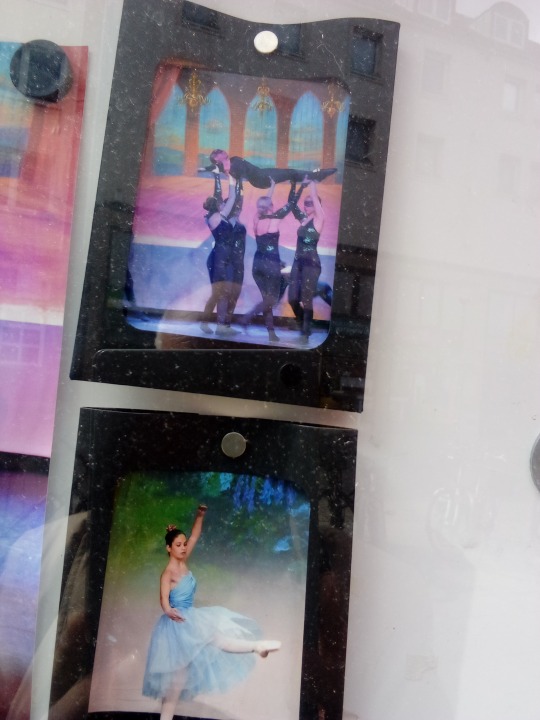




Der sogar auch maennliche Held oder angeblich so 'grosse Ritter'. Oft gibt er ihn nur - speziell vor oder in Anwesenheit von Frauen! Er schauspielert ihnen etwas vor! Stattdessen suchte auch er allein nach neuen Betterfahrungen und Bettgrspielinnen fuer auch sich! (Den selben Vorwurf erhob man in der Vergangenheit schon auch gegen mich! Selber halte ich das fuer stark uebertrieben, galt er vielleicht dann sogar wieder einmal auch mir!) Alle Maenner - und zwar weltweit, wirklich alle, verdiente sich bestaendig nur so, es gaeb' da bis heute kaum Ausnahmen!
Geld/Helden.












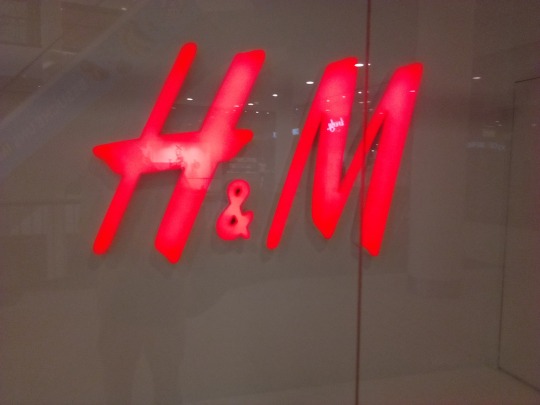


0 notes
